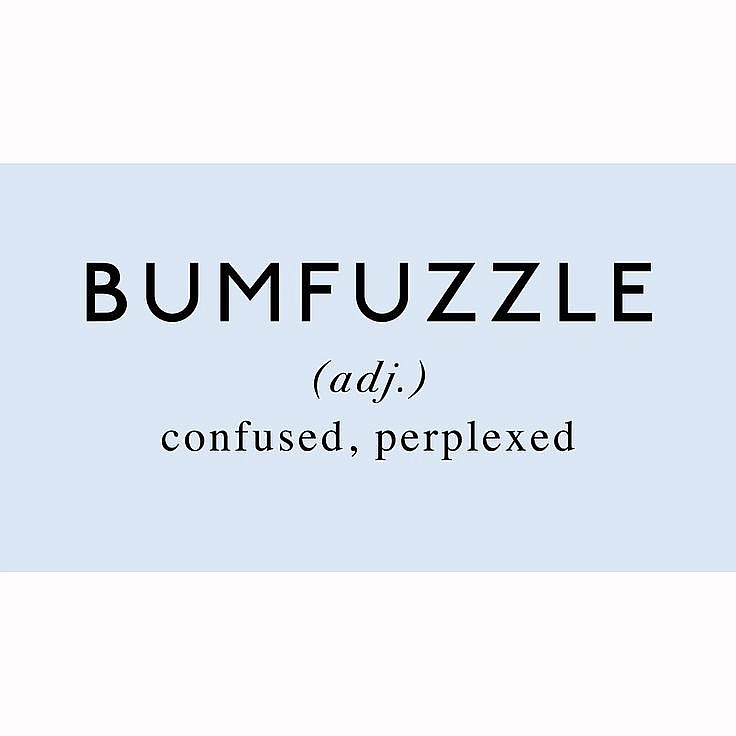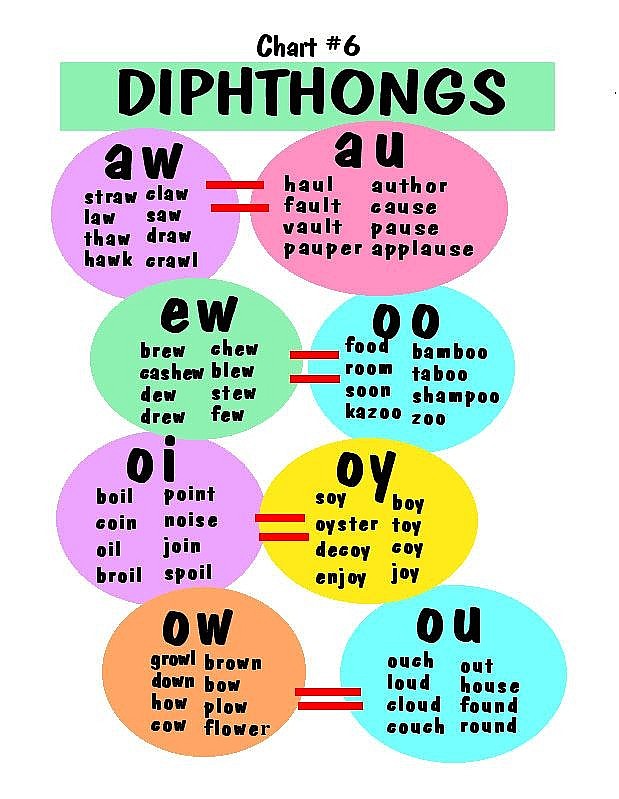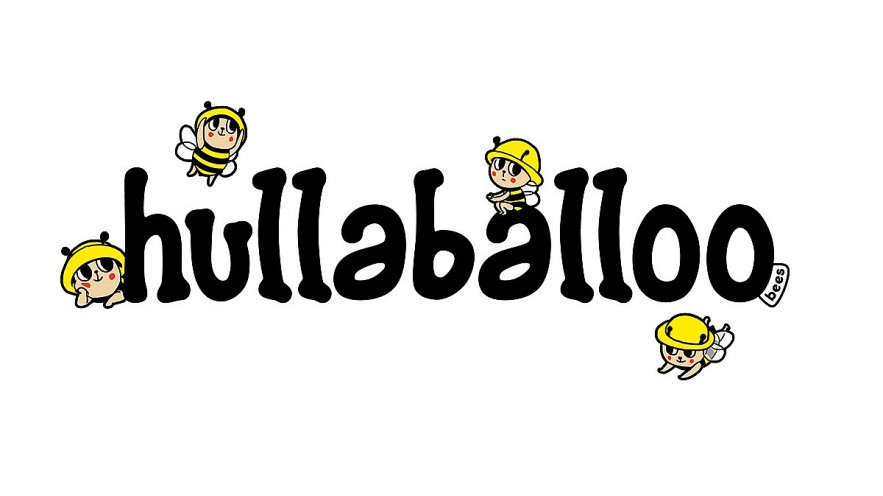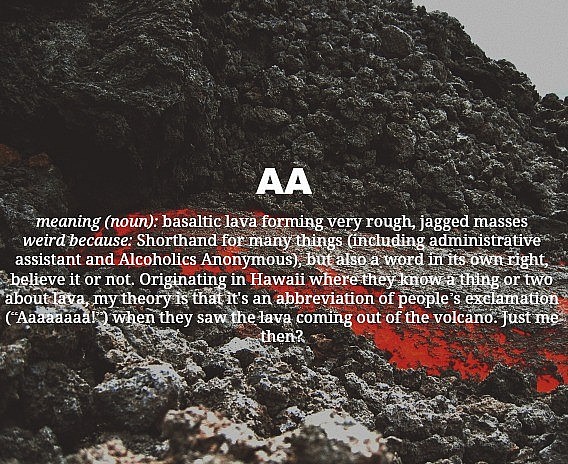
By
Last updated:
January 7, 2023
Learning English is not always easy. English is especially known for having a crazy vocabulary that can make things tricky for learners.
Even if you’ve mastered all the important grammar rules, slang words and idioms, weird English words come along and can still leave you feeling a bit confused!
Lucky for you, this post will introduce you to 15 weird English words that you should know!
Contents
- 1. Kerfuffle (kəˈfʌf(ə)l)
- 2. Hullaballoo (ˌhʌl.ə.bəˈluː)
- 3. Cacophony (kəˈkɒf(ə)ni)
- 4. Ragamuffin (ˈraɡəmʌfɪn)
- 5. Whippersnapper (ˈwɪpəsnapə)
- 6. Gobbledygook (ˈɡɒb(ə)ldɪˌɡuːk)
- 7. Gibberish (ˈdʒɪb(ə)rɪʃ)
- 8. Poppycock (ˈpɒpɪkɒk)
- 9. Discombobulate (ˌdɪskəmˈbɒbjʊleɪt)
- 10. Flummox (ˈflʌməks)
- 11. Curmudgeon (kəːˈmʌdʒ(ə)n)
- 12. Lackadaisical (ˌlakəˈdeɪzɪk(ə)l)
- 13. Woebegone (ˈwəʊbɪɡɒn)
- 14. Lollygag (ˈlɒlɪɡaɡ)
- 15. Frankenfood (ˈfraŋk(ə)nfuːd)
Download:
This blog post is available as a convenient and portable PDF that you
can take anywhere.
Click here to get a copy. (Download)
1. Kerfuffle (kəˈfʌf(ə)l)
Kerfuffle (noun) has been around since the early 1800s and probably came from either Scottish Gaelic or from Celtic Irish, the languages that were used historically in Scotland and Ireland.
It means to make a fuss or a bother, usually when people have different points of view.
What’s all the shouting for? Why are you making such a kerfuffle?
2. Hullaballoo (ˌhʌl.ə.bəˈluː)
“Did you hear all that hullaballoo in the office today?”
A word that really sounds like what it means, hullaballoo (noun) is the loud noises and shouting that people make when they’re angry.
It’s been part of the English language since the middle of the 18th century.
3. Cacophony (kəˈkɒf(ə)ni)
Another word related to noise, a cacophony (noun) is a mixture of horrible sounds. Imagine birds screeching, alarm bells ringing and babies screaming… and you’ve got yourself a cacophony!
You may already know that words that end in phone or phony are related to sound in some way. Cacophony comes from a Greek word made up from kacos (bad) and phone (sound). It entered English in the mid 1600s.
4. Ragamuffin (ˈraɡəmʌfɪn)
Ragamuffin (noun) comes from the English that was used during the Middle Ages.
You’ve probably heard the word rag, right? A dirty and scruffy piece of old cloth. So it’ll make sense to know that a ragamuffin is a person who wears dirty and scruffy clothes – clothes that are just like rags!
It’s usually used for children, and you may also sometimes hear it used to describe scruffy-looking animals.
I send my children to school dressed smartly, and they come home like little ragamuffins!
5. Whippersnapper (ˈwɪpəsnapə)
Nothing to do with whips or snaps, say whippersnapper (noun) quickly and you’ll create a funny and harsh sound!
Although this term is a little bit old-fashioned today, it’ll certainly make people smile if you use it.
It’s been part of the English language since the 17th century and is a mixture of two terms. One referred to a lazy person who had no ambitions. The other term was used for young people who lived on the street and did bad things, like stealing.
The meaning has changed over the years, and today it’s used for a young person who’s too confident and perhaps a little cheeky! It’s a perfect word to use for an inquisitive child who just can’t stop questioning and correcting their parents!
6. Gobbledygook (ˈɡɒb(ə)ldɪˌɡuːk)
Close your eyes for a second and think of a turkey. What sound does it make? Does it sound something like “gobble, gobble, gobble”? That’s exactly where this word came from!
Created from the meaningless sound that turkeys make, gobbledygook (noun) was originally an American English word. It was created in the 1940s to mean words that are nonsense or have no meaning.
It also describes when people use too many technical words and so other people can’t understand what they’e saying.
The Director was talking a load of gobbledygook in that meeting. I have no idea what he wants!
7. Gibberish (ˈdʒɪb(ə)rɪʃ)
If someone is talking gobbledegook they’ll also be talking gibberish!
Gibberish (noun) means the same: nonsense words and phrases that sound like English but have little meaning.
Gibberish is an older term than gobbledegook. It’s been in use since the mid 16th century. It’s not known where the word came from, but many people believe it was taken from either a similar Spanish or Swedish word.
8. Poppycock (ˈpɒpɪkɒk)
Have you ever listened to somebody trying to talk about something that they know absolutely nothing about? You know that what they’re saying is completely untrue, yet they insist on continuing to talk?
It’s highly likely that they’re talking poppycock! Poppycock has nothing to do with poppies (a type of flower) or cocks (a male bird and a slang term for a man’s intimate body parts!)
Poppycock actually came from the Dutch word pappekak, which is made from pap (soft) and kak (poop!). It’s been part of English since the 1800s.
What a load of poppycock!
9. Discombobulate (ˌdɪskəmˈbɒbjʊleɪt)
Mainly used in North American English, if somebody’s talking lots of gibberish, gobbledegook and poppycock, they may be trying to discombobulate (verb) another person. You may feel a little discombobulated (adjective) by all these strange words!
Confused? You should be! Discombobulate means to confuse!
It’s been used since the mid 19th century, and is mainly used in a funny way.
What’s the matter? You look a little discombobulated!
10. Flummox (ˈflʌməks)
If you’re now feeling very discombobulated you are also flummoxed (adjective)!
To flummox a person (verb) means to confuse them a lot.
It came into the English language in the middle of the 19th century. It was taken from dialects used in some parts of the UK.
11. Curmudgeon (kəːˈmʌdʒ(ə)n)
Are you trying to find just the right word for someone who’s very bad-tempered and grumpy? Curmudgeon (noun) might be just the word that you’re looking for!
Dating back to at least the 16th century, this word has been used for a long time.
I don’t like our English teacher… he is a real curmudgeon!
12. Lackadaisical (ˌlakəˈdeɪzɪk(ə)l)
How about if you want to describe that someone’s lazy and has no enthusiasm or determination? Lackadaisical (adjective) would be perfect in this situation!
It’s been in use since the 1700s, although where it came from isn’t clear.
My sister has no job and is doing nothing to find one. She is so lackadaisical.
13. Woebegone (ˈwəʊbɪɡɒn)
Another terrific adjective. Can you guess what a woebegone person looks like?
It’s easy to break this word into two parts – woe (extreme sadness) and begone (an old-fashioned word that means surrounded by something).
So, woebegone means “surrounded by sadness.” It comes from Middle English, English that was used during the Middle Ages.
Why do you look so woebegone?
14. Lollygag (ˈlɒlɪɡaɡ)
What a fantastic verb: to lollygag! Nothing to do with lollies or gags, it actually means to be idle and lazy or to waste time.
It’s most common in the USA. It’s not unusual to hear parents shout to their children to “stop lollygagging” – now you’ll know what they’re talking about!
The word has been used since the 1800s.
15. Frankenfood (ˈfraŋk(ə)nfuːd)
Very new when compared to all the others on the list, the word Frankenfood (noun) came into existence in the 1990s.
It’s used informally for genetically modified (GM) foods. GM foods are those that have been scientifically altered in some way, that haven’t grown naturally.
Frankenfood is a combination of the words Frankenstein and food.
I’m not eating there! They use Frankenfoods!
While these are all great examples of weird English words, they are not the only ones out there. To find more strange words, you can expose yourself to native English and naturally come across some of those funky words.
Try reading books, watching movies or listening to music in English. All of these are great ways to pick up new vocabulary.
You can also try FluentU which intentionally introduces you to English as it’s actually used through authentic videos like movie clips, music videos etc.
There are also learning tools like interactive subtitles, quizzes and flashcards that will help you learn. FluentU is available on iOS and Android.
There’s no need to feel discombobulated if you hear gibberish – learning new words can be easy once you start!
Download:
This blog post is available as a convenient and portable PDF that you
can take anywhere.
Click here to get a copy. (Download)
English is a language full of surprises, and sometimes, even native speakers can come across words that leave them scratching their heads. As a result, it’s not surprising that there are some words that are downright weird and quirky. From archaic terms to strange-sounding words, here are the weirdest words in the English language.
Defenestration – This mouthful of a word refers to the act of throwing someone or something out of a window. It comes from the Latin word “fenestra,” meaning “window.”
Snollygoster – A snollygoster is a shrewd or unprincipled person, especially a politician. The origin of this word is uncertain, but it’s believed to have originated in the United States in the mid-19th century.
Hippopotomonstrosesquipedalianism – This tongue-twister of a word refers to the use of long words, and ironically, it’s one of the longest words in the English language.
Floccinaucinihilipilification – Another mouthful, this word refers to the act of describing something as worthless or unimportant.
Nudiustertian – This archaic term refers to the day before yesterday.
Ultracrepidarian – An ultracrepidarian is someone who speaks or gives opinions beyond their expertise or knowledge.
Bumfuzzle – To be bumfuzzled is to be confused, bewildered, or perplexed.
Skedaddle – To skedaddle is to run away or leave in a hurry.
Collywobbles – The collywobbles are a feeling of queasiness or discomfort in the stomach, often associated with anxiety or nervousness.
Blatherskite – A blatherskite is a person who talks excessively or nonsensically.
Squelch – This word refers to a wet, sucking sound that is made when you walk through mud or waterlogged ground.
Flummox – Flummox means to confuse or perplex someone, often by presenting them with a problem that is difficult to solve.
Kerfuffle – Kerfuffle is a word that is used to describe a commotion or fuss that is caused by a minor disagreement or misunderstanding.
Brouhaha – Brouhaha is another word that is used to describe a noisy and overexcited response to something that is often trivial or unimportant.
Gobbledygook – Gobbledygook refers to language that is meaningless or unintelligible, often used to describe bureaucratic jargon or technical language.
Skedaddle – Skedaddle is a word that means to run away quickly or leave a place in a hurry.
Flapdoodle – Flapdoodle is a term that is used to describe nonsense or foolish talk.
Blatherskite – Blatherskite is another word that means someone who talks nonsense or foolishly.
Flibbertigibbet – Flibbertigibbet is a word that is used to describe a frivolous or flighty person, often someone who talks too much.
Lollygag – Lollygag means to spend time aimlessly, often in a lazy or idle manner.
Widdershins – Widdershins is a word that means to move in a counterclockwise direction, or to go against the usual way of doing things.
English is a rich and complex language, and these words are just a small sample of the many weird and wonderful words that exist. Whether you’re a native speaker or a non-native speaker, exploring the strange and unusual words of the English language can be a fun and entertaining way to improve your vocabulary and expand your linguistic horizons.
Download Vocabulary Builder
Post Views: 174
What are the weirdest words in the English language?
7 weird words in the English language
- Say “bum-fuzz-ul” The word bumfuzzle means ‘to confuse someone.
- Say “bum-ber-shoot” The word bumbershoot is a super fun word and another way to say umbrella!
- Say “loll-ee-gag”
- Say “hull-a-ba-loo”
- Say “gaw-bull-dee-goo-k”
What is the weirdest word in the dictionary?
Have a look at these weird English words and try them out as you speak with people:
- Poppycock (ˈpɒpɪkɒk)
- Discombobulate (ˌdɪskəmˈbɒbjʊleɪt)
- Flummox (ˈflʌməks)
- Curmudgeon (kəːˈmʌdʒ(ə)n)
- Lackadaisical (ˌlakəˈdeɪzɪk(ə)l)
- Woebegone (ˈwəʊbɪɡɒn)
- Lollygag (ˈlɒlɪɡaɡ)
- Frankenfood (ˈfraŋk(ə)nfuːd)
What is a weird word?
Frequently Asked Questions About weird The words eerie and uncanny are common synonyms of weird. While all three words mean “mysteriously strange or fantastic,” weird may imply an unearthly or supernatural strangeness or it may stress peculiarity or oddness.
What is a good word for weird?
What is another word for weird?
| bizarre | odd |
|---|---|
| queer | strange |
| offbeat | outlandish |
| crazy | curious |
| eccentric | peculiar |
What is another word for weird or strange?
Frequently Asked Questions About strange Some common synonyms of strange are eccentric, erratic, odd, outlandish, peculiar, quaint, singular, and unique.
What is an odd person called?
eccentric. nounperson who is bizarre, unusual. beatnik. character. freak.
What is a another word for scary?
terrifying, horrifying, terrible, frightful, appalling, horrific, frightened, horrible, fearsome, dreadful, alarming, awful, spooky, shocking, startling, distressing, intimidating, hairy, daunting, fearful, disturbing, worrisome, horrendous, nerve-racking, staggering, disquieting, gruesome, troubling, grim, hideous.
What does terrifying mean?
1 : causing terror or apprehension. 2 : of a formidable nature.
How do you describe a scary person?
bloodcurdling
- alarming.
- atrocious.
- chilling.
- frightening.
- hair-raising.
- horrid.
- horrific.
- horrifying.
What is an antonym for good?
Antonyms. evilness wrong unrighteous wicked evil immoral unworthy. Etymology. good (English)
What is being a good person called?
gentleperson. nounpolite, well-mannered person.
How do you say something is good?
10 expressions to Use In Speaking And Writing:
- It’s great.
- It’s fantastic.
- It’s excellent.
- It’s better than average.
- It’s not bad.
- I’d recommend it.
- I’m very impressed.
- It’s better than I expected.
How do you say something looks good?
beauteous
- attractive.
- bonny.
- comely.
- easy on the eyes.
- fine-looking.
- good-looking.
- gorgeous.
- handsome.
What can you say instead of good job?
The List
- “Hmm!” Smile and nod. That’s right.
- Tell me about this!
- I can see that you_____. (
- You look proud.
- Describe + How did you do it?
- Thank you!
- Describe + I appreciate your hard work / effort.
- Your face looks happy!
How do you say well done?
21 ways to say “well done”
- I’m proud you’re on my team.
- Congratulations on a terrific job.
- You’re so helpful. Thank you.
- You continually improve. Well done.
- Thanks so much for your consistent effort.
- I really admire your perseverance.
- Your cheerful mood lifts the team’s spirit.
- You’re a champion.
How do you say job well done?
For a job well done Thanks, this is exactly what I was looking for. Wonderful, this is more than I expected. This is so great I don’t need to make any revisions to it at all. I appreciate your critical thinking around this project.
How do you use well done in a sentence?
It is fair to say that, on the whole, it has been well done. It has been very well done and it was very badly needed. I should have thought that was pretty well done at present. I am not going to list what has been done—and well done—since then, and much that needs to be done.
Which is better very good or well done?
The rule of thumb is that good is an adjective and well is an adverb. Good modifies a noun; something can be or seem good. All you need to remember when you are pondering whether good or well is best for your sentence is that good modifies a person, place, or thing, whereas well modifies an action.
What is another word for well done?
What is another word for well-done?
| good on you | good for you |
|---|---|
| well done | congratulations |
| hooray | hurrah |
| bravo | good job |
| take a bow | way to go |
Do you say I’m good or I’m well?
Therefore, “I’m good,” is a proper response. “I’m well” is also allowed but not for the reasons many think. That response only works if “well” takes on its adjectival form, meaning “in good health” or “good or satisfactory.” Now, if someone asks “How are you doing?” “I’m doing well” is the correct response.
Is very good proper English?
“Your English is very good” is grammatically correct. “Good” is a predicate adjective referring to the noun “English.” “Very” is an adverb modifying “good.”
What is good grammar?
What Does Good Grammar Mean? Good grammar means writing or speaking in such a way that your choice of words is understandable and follows the basic rules of sentence construction, punctuation and spelling.
Can I say very well?
Yes, you can. In fact, you can say either very well or very good. It merely depends on what you are referring to.
How do you say I’m very well?
10 expressions to Use In Speaking And Writing:
- I’m fine thank you.
- I feel great / marvellous / fine.
- Couldn’t be better.
- Fit as a fiddle.
- Very well, thanks.
- Okay.
- Alright.
- Not bad.
What are the weirdest words in the English language?
by
Alex Heath
·
2019-04-27
What are the weirdest words in the English language?
7 weird words in the English language
- Say “bum-fuzz-ul” The word bumfuzzle means ‘to confuse someone.
- Say “bum-ber-shoot” The word bumbershoot is a super fun word and another way to say umbrella!
- Say “loll-ee-gag”
- Say “hull-a-ba-loo”
- Say “gaw-bull-dee-goo-k”
What is a weird word?
Frequently Asked Questions About weird The words eerie and uncanny are common synonyms of weird. While all three words mean “mysteriously strange or fantastic,” weird may imply an unearthly or supernatural strangeness or it may stress peculiarity or oddness.
What is a good word for weird?
What is another word for weird?
| bizarre | odd |
|---|---|
| queer | strange |
| offbeat | outlandish |
| crazy | curious |
| eccentric | peculiar |
What is another word for well done?
What is another word for well-done?
| good on you | good for you |
|---|---|
| well done | congratulations |
| hooray | hurrah |
| bravo | good job |
| take a bow | way to go |
Do you say I’m good or I’m well?
Therefore, “I’m good,” is a proper response. “I’m well” is also allowed but not for the reasons many think. That response only works if “well” takes on its adjectival form, meaning “in good health” or “good or satisfactory.” Now, if someone asks “How are you doing?” “I’m doing well” is the correct response.
Is very good proper English?
“Your English is very good” is grammatically correct. “Good” is a predicate adjective referring to the noun “English.” “Very” is an adverb modifying “good.”
What is good grammar?
What Does Good Grammar Mean? Good grammar means writing or speaking in such a way that your choice of words is understandable and follows the basic rules of sentence construction, punctuation and spelling.
Can I say very well?
Yes, you can. In fact, you can say either very well or very good. It merely depends on what you are referring to.
How do you say I’m very well?
10 expressions to Use In Speaking And Writing:
- I’m fine thank you.
- I feel great / marvellous / fine.
- Couldn’t be better.
- Fit as a fiddle.
- Very well, thanks.
- Okay.
- Alright.
- Not bad.
While reading books, have you ever encountered rare words tat you don’t know the meaning? This can happen to anyone especially non-native speakers. This article will give you a list of 30+ weirdest and rarest words in English.
 |
| Top 30+ Weirdest and Rarest World Words In English Language. Photo KnowInsiders |
| Table of Contents |
|
Why Learn Weird English Words? Top 30+ Weirdest and Rarest World Words In English Language 1. Anachronism 2. Accismus 3. Acnestis 4. Agelast 5. Bailiwick How to Remember Weird New English Words: Keep a Vocabulary List 6. Bumfuzzle 7. Behoove 8. Cacophony How to Remember Weird New English Words: Use Post-It Notes and Cards 9. Crapulence 10. Diphthong 11. Draconian 12. Effete 13. Fatuous 14. Gargalesthesia 15. Gobbledygook 16. Jentacular 17. Kerfuffle Weird long word: Kakorrhaphiophobia 18. Hullaballoo (ˌhʌl.ə.bəˈluː) 19. Lionize 20. Lalochezia 21. Meldrop Weird short word 22. Noisome 23. Obfuscate 24. Nikehedonia 25. Nudiustertian 26. Pareidolia 27. Riposte 28. Obelus 29. Verisimilitude 30. Zeugma Conclusion |
Why Learn Weird English Words?
Increasing your vocabulary is always useful—from basic, common vocabulary words to the weirdest ones in the language.
Even native English speakers are constantly learning new words that they never knew existed! You’ll have more brilliant ways that you can describe things and express your ideas. You can impress your friends with your knowledge or even get a great new job by demonstrating your English skills in a big interview.
Just understanding one more word will help you make your way through confusing English conversations. Even if you never use some of these weird words, you won’t be left wondering “what?” if you hear native English speakers use them.
You will also understand a lot more too! This can lead to greater confidence … which then means you speak and practice even more!
Finally, weird English words often have lots of syllables (the different sounds within a word) and unique letter combinations, making them excellent for pronunciation practice.
Say them out loud. Hear the fantastic sounds they make, and you’ll certainly agree that these weird words will add some more life to your sentences and make people stop and listen!
Top 30+ Weirdest and Rarest World Words In English Language
1. Anachronism
Pronunciation: /əˈnæk.rə.nɪ.zəm/
Definition: An anachronism is something (or someone) that is out of place in terms of time or chronology. This is most common with old-fashioned items in a modern setting, but can also occur with futuristic items in period pieces. Most anachronisms are there by mistake, especially within movies and television shows.
E.g. Showing the Pharaoh wearing a wristwatch was an obvious anachronism.
2. Accismus
Pronunciation: /ækˈsɪzməs/
Definition: A form of irony in which someone feigns indifference to something he or she desires. Aesop’s fable The Fox and the Grapes illustrates accismus when the fox dismisses some grapes he is unable to reach, stating that he is sure they are sour anyway.
E.g. “Oh I couldn’t possibly accept…” Exclaimed Veronica upon being presented with a pair of diamond earrings, her natural affinity for accismus shining through.
3. Acnestis
Definition: Space between shoulder blades that cannot be reached to scratch
Pronunciation: ak-NEES-tis
4. Agelast
Definition: A person who never laughs
Pronunciation: AJ-uh-last
E.g. I’m not sure is she’s an agelast because she is grumpy or because she’s vain.
5. Bailiwick
Definition: a person’s area of skill, knowledge, authority, or work (noun)
Pronunciation: /ˈbeɪliwɪk/
E.g.He never writes up our reports—that’s my bailiwick.
How to Remember Weird New English Words: Keep a Vocabulary List
Once you’ve learned all the great new words in our list below, make sure that you actually practice them so that you can make them part of your regular conversations.
Some top tips for remembering new vocabulary include the following points:
• This doesn’t have to be anything fancy—just a small notebook where you write all new words as you learn them. It helps to have a page for words that start with each letter of the alphabet.
• Divide each page into three columns. Write the word in the first column and a short definition (in English) in the second column. You can use the third column for making notes, sample sentences and any additional meaning in your own language.
6. Bumfuzzle
 |
| Photo Pinterest |
To bumfuzzle is to confuse or fluster.
Bumfuzzle is most often used in the dialect of the Southern United States. It is colloquial, meaning it is typically used in informal conversation. It is very similar to bamboozle, and may be derived from it.
How to pronounce: /buhm-fuhz-uhl/
E.g. I was totally bumfuzzled by the physics homework last night—I didn’t understand any of it!
7. Behoove
Definition: You can use behoove as a verb that means to be necessary or appropriate for something else. It comes in handy when telling someone why they should do something or when writing a persuasive essay.
Pronunciation: /bɪˈhuv/
Example: «It would behoove the students to learn the vocabulary terms before the test next week.»
Idiom:
• it behooves somebody to do something (formal)
• it is right or necessary for someone to do something
• E.g. It behooves us to study these findings carefully.
8. Cacophony
Definition: A cacophony is a harsh mixture of sounds. It descends from the Greek word phōnē which means sound or voice, and is joined with the Greek prefix kak-, meaning bad; creating the meaning bad sound. In a similar way, the word symphony (which means a harmonious arrangement of instruments) traces to phōnē and the Greek prefix syn-, which means together.
Pronunciation: /kəˈkɒf.ə.ni/
E.g. I couldn’t hear over the cacophony of alarm bells.
How to Remember Weird New English Words: Use Post-It Notes and Cards
If you find some words very difficult to remember, try to write the word on a post-it note and stick it somewhere where you’ll see it often. The more you read the word the more you’ll remember it.
You could also have small cards with new words that you take with you to different places—you can then refresh your memory when sitting on the train or bus, waiting for a friend in a coffee shop on your lunch break… anywhere!
9. Crapulence
Definition: Sickness caused by excessive eating or drinking
Pronunciation: krăp′yə-ləns
10. Diphthong
Definition: A sound formed by the combination of two vowels in a single syllable, in which the sound begins as one vowel and moves toward another (noun)
Pronunciation: /ˈdɪf.θɒŋ/
E.g.To adopt such an idea would simplify the teaching of the vowels to learners, since you could absorb these so-called diphthongs into the simple system.
 |
| Photo Pinterest |
11. Draconian
An adjective to describe something that is excessively harsh and severe. Derives from Draco, a 7th-century Athenian law scribe under whom small offenses had heavy punishments; prescribing death for almost every offence.
Pronunciation: /drəˈkəʊ.ni.ən/
E.g. The new parking fines are positively draconian.
12. Effete
Sometime, you meet someone or encounter something that is overly refined — even to the point of uselessness. That thing is effete.
Pronunciation: /ɪˈfiːt/
Example: «Her beautifully manicured nails were an effete affectation, getting in the way every time she tried to type.»
13. Fatuous
Definition: Sometimes you need to describe someone or something that is foolish or silly. That’s a great time to use the word fatuous.
Pronunciation: /ˈfætʃ.u.əs/
Example: «The clown wore large shoes and a red nose and was generally fatuous.»
14. Gargalesthesia
 |
| Photo Pinterest |
Definition: The sensation commonly associated with tickling
Pronunciation: /gar-guhl-es-thee-zee-yah/
15. Gobbledygook
Definition: Close your eyes for a second and think of a turkey. What sound does it make? Does it sound something like “gobble, gobble, gobble”? That’s exactly where this word came from!
Created from the meaningless sound that turkeys make, gobbledygook (noun) was originally an American English word. It was created in the 1940’s to mean words that are nonsense or have no meaning. It also describes when people use too many technical words and so other people can’t understand what they’e saying.
Pronunciation: /ˈɡɒb(ə)ldɪˌɡuːk/
E.g. The Director was talking a load of gobbledygook in that meeting. I have no idea what he wants!”
16. Jentacular
Definition: Of or pertaining to a breakfast taken early in the morning, or immediately upon getting up
Pronunciation: jen-TAK-yuh-luhr
• jabberwock means nonsense, gibberish
• jabiru means large tropical stork with massive bill
• jettatura means the evil eye
• jib means small triangular sail extending from the head of the foremast
• jibboom means spar forming an extension of the bowsprit
• jibe means to change a ship’s course to make the boom shift sides
• jiboya means boa constrictor
• jiffy means unit of time used in computing equal to 1/100 second; any small unit of time
• jupon means sleeveless jacket worn beneath a hauberk
• jural means of, like or pertaining to the law
17. Kerfuffle
Pronunciation: /kəˈfʌf(ə)l/
Kerfuffle (noun) has been around since the early 1800s. There are two ideas as to how it came into English. It probably came from either Scottish Gaelic or from Celtic Irish, the languages that were used historically in Scotland and Ireland.
If somebody asked you the following question, would you know what they meant?
“What’s all the shouting for? Why are you making such a kerfuffle?”
It means to make a fuss or a bother, usually when people have different points of view. Imagine two of your friends having a minor disagreement over something and making quite a bit of noise – doesn’t kerfuffle sound like a great way to describe the situation? They might also be making a hullaballoo too…
Weird long word: Kakorrhaphiophobia
Kakorrhaphiophobia is an abnormal, persistent, irrational fear of failure. In clinical cases, it’s debilitating: the fear of even the most subtle failure or defeat is so intense that it restricts a person from doing anything at all.
Kakorrhaphiophobia is the most extreme version of what we all experience when we decide to acquire a new skill: doubt, uncertainty, anxiety about our capabilities, and fear of what others will think:
- «What if I fail?»
- «What if I look bad?»
- «What if others think I’m stupid?»
- «What if others think I’m not very good?»
- «What if others aren’t impressed with what I can do?»
18. Hullaballoo (ˌhʌl.ə.bəˈluː)
 |
| Photo behance |
Pronunciation: /ˌhʌl.ə.bəˈluː/
“Did you hear all that hullaballoo in the office today?”
A word that really sounds like what it means, hullaballoo (noun) is the loud noises and shouting that people make when they’re angry.
It’s been part of the English language since the middle of the 18th century.
19. Lionize
Pronunciation: /ˈlaɪ.ə.naɪz/
This awesome positive L word is a verb you can use to talk about celebrities and important historical figures and the way people view them. Lionize means to treat someone as a hero.
Example: «In the North, people began to lionize Abraham Lincoln soon after his assassination.»
20. Lalochezia
Definition: Emotional relief gained by using indecent or vulgar language.
Pronunciation: lal’ō-kē’zē-ă
21. Meldrop
Definition: A drop of mucus hanging from the tip of one’s nose
Pronunciation: mell–drawp
Weird short word
22. Noisome
Definition: If you need to describe something that is harmful or really annoying to the point of near harm, use the word noisome. It’s also ideal for describing something that smells bad.
Pronunciation: /ˈnɔɪ.səm/
Example: «The cooler of fish, forgotten in the trunk of the car, began to emit a noisome odor after a few days.»
 Top 25 Trickiest Eggcorns In The English Language
Top 25 Trickiest Eggcorns In The English Language
Do you know sometimes a word that sounds like the right word and feels like the right word isn’t actually the right word. It is …
23. Obfuscate
Definition: Have you ever seen someone make something more confusing than it needs to be? That person is obfuscating a concept.
Pronunciation: /ˈɒb.fʌs.keɪt/
Example: «While making bread is really a very simple process, his explanation of the different types of yeast and flour served to obfuscate the concept.»
24. Nikehedonia
Definition: The pleasure or excitement that comes from anticipating success
Pronunciation: nai-kee-huh-daa-nee-uh
25. Nudiustertian
Definition: Of or relating to the day before yesterday
Pronunciation: noo-dee-uhs-TUR-shuhn
E.g.“I’d placed the order that nudiustertian morning”
26. Pareidolia
Pronunciation: /ˌpær.ɪˈdəʊl.jə/
Definition: A psychological phenomenon in which the mind perceives a specific image or pattern where it does not actually exist, such as seeing a face in the clouds. Pareidolia can be used to explain a host of otherwise unexplained sightings.
E.g. Alex was sure he saw a human face on the moon’s surface, but it was more likely to be pareidolia.
27. Riposte
Pronunciation: /rɪˈpɒst/
Definition: A quick or witty retaliatory reply. In the context of the sport of fencing, a riposte means a counterattack that is made after successfully fending off one’s opponent.
E.g. Cora was known for having an excellent riposte to any insult.
28. Obelus
Definition: The name for the division symbol ÷
Pronunciation: aa-buh-luhs
29. Verisimilitude
Definition: Something that merely seems to be true or real. Many writers or filmmakers try for some kind of verisimilitude in their stories, to make them believable. Including a great many details in a novel, for example, adds to its verisimilitude.
Pronunciation: /ˌver.ɪ.sɪˈmɪl.ɪ.tʃuːd/
E.g. She was experiencing a nightmare of the most extraordinary verisimilitude.
30. Zeugma
Definition: A figure of speech in which one word has a double meaning within a sentence, zeugma is a useful term for language arts papers. An example of this would be, “He stole my heart and my car.”
Pronunciation: /ˈzjuːɡ.mə/
Example: «In a statement of zeugma, she said she liked her men like she liked her tea: sweet, strong, and fragrant.»
Conclusion
How to use these rare words correctly? First you should understand their meaning.
If you’ve ever seen someone misusing words, you know how that kind of mistake can reflect negatively on perceptions of intelligence. Take a few moments to quiz yourself on the meaning of these uncommon words so you can break them out in your next essay or speech.
 The Most Popular Passwords and The Worst Passwords The Most Popular Passwords and The Worst Passwords
Surprising, many people seriously still using 123456, abcd1234… as a password for their online accounts. If your password is on this list, you should change … |
 Most Expensive Google Keywords 2022 to Increase Adsense Earnings Most Expensive Google Keywords 2022 to Increase Adsense Earnings
We try to find ouf and predict the most expensive Google keywords in 2022 and the coming years — High CPC Adsense Keywords — that … |
 Learn These 2 Words, Your Life Will Change Automatically Learn These 2 Words, Your Life Will Change Automatically
In this life, there are no insurmountable obstacles, after the rain there will be a rainbow. A truly wise person is one who knows how … |
Lists, Other, Weird
When we’re angry or trying to describe something we love, we can tend to run out of words to say. If we don’t have a big vocabulary, we may tend to make up some words just to show how astonishing or angry we are. That could have been the inspiration to create the following extremely crazy words that can actually be found in any dictionary. Whether it’s just a strange word that’s used frequently or something that’s never been heard before, here are the 10 weirdest words we could find in the English language.
Hullabaloo
It sounds like a completely made-up word, but it can actually be found in the dictionary. It’s spelled and defined just like it sounds. When someone is referring to hullabaloo, they mean all the extra noises around them.
Frankenfood
Born just in the 1990s, “Frankenfood” refers to food that has been genetically modified. Obviously, it’s a spin off of Frankenstein, the classic tale of a mad scientist that created a live monster. It also doesn’t make the food sound very appealing.
Curmudgeon
This word was used more back in earlier centuries, but it’s turned into a proper way to call somebody that tends to get angry frequently. If you call an angry person that doesn’t know the definition of the word this, you might get them even more “curmudgeonous.”
Lollygag
Commonly used to reference a person that’s being lazy or purposely delaying things. What makes the word so weird is the combination of “lolly” and “gag,” which have nothing to do with its definition.
Doodlesack
Admittedly, this one is a little weird, but we promise we’re not just combining two words together. Doodlesack is actually an old term that means “bagpipe.”
Nudiustertian
At first glance, you’d believe this word had to do something with naked people or the art of nudism. Instead, it simply means the day before yesterday. It’s a term that hasn’t really caught on.
Whippersnapper
This is one word that’s changed over the years. Originally meaning somebody that didn’t have a purpose in life, in now refers to young individuals who are inexperienced and are overconfident.
Bibble
No, that’s not just a misspelling of the Holy Book. Bibble refers to eating and drinking often and/or with a loud noise. It’s also the name of a fictional character in the Barbie universe.
Gobbledygook
Perhaps the best synonym to gibberish, which is a weird name on its own, is gobbledygook. This was a word created by the influence of turkeys back in the 1940s.
Tittynope
Perhaps the weirdest word you can find in the English dictionary is this one. If separated, it creates a slang word for boobs and another word meaning denial — two words that definitely don’t go together. Except in this instance, it creates a word that means a small amount of leftovers.

